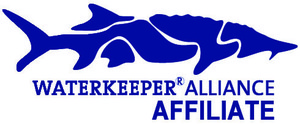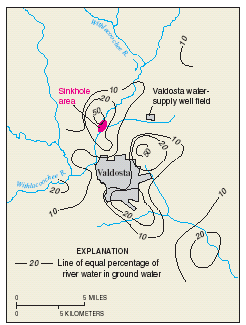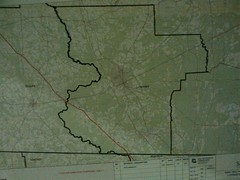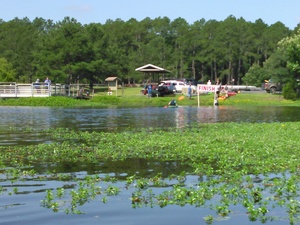At Valdosta Farm Days
WWALS becomes a Waterkeeper Affiliate
FOR IMMEDIATE RELEASE
WWALS Watershed Coalition becomes a Waterkeeper Affiliate to Patrol and Protect the Withlacoochee and Alapaha Rivers and all their tributaries.
 Adel, (June 12, 2015) — The Waterkeeper Alliance Board of
Directors approved WWALS Watershed Coalition, Inc. as a Waterkeeper
Affiliate on June 4th, 2015. WWALS Watershed Coalition, a
Waterkeeper Affiliate, will work to conserve our central south
Georgia and north Florida watersheds by combining firsthand
knowledge of the watersheds with an unwavering commitment to the
rights of the community and to the rule of law.
Adel, (June 12, 2015) — The Waterkeeper Alliance Board of
Directors approved WWALS Watershed Coalition, Inc. as a Waterkeeper
Affiliate on June 4th, 2015. WWALS Watershed Coalition, a
Waterkeeper Affiliate, will work to conserve our central south
Georgia and north Florida watersheds by combining firsthand
knowledge of the watersheds with an unwavering commitment to the
rights of the community and to the rule of law.
“Waterkeeper Alliance is thrilled to have WWALS as the eyes, ears, and voice for this vital watershed and community,” said Robert F. Kennedy Jr., Waterkeeper Alliance President. “Every Continue reading
The Alapaha River Corridor: a high priority wildlife landscape feature
Interesting find by Heather in the State Wildlife Action Plan, July 31, 2015, Georgia Department of Natural Resources, Wildlife Resources Division, featuring the newly-scientifically-recognized Suwannee River alligator snapping turtle. Maybe we’ll see one on the WWALS outing this Sunday from Sasser Landing to Jennings Bluff, and you can preview some of the vegetation mentioned in Julie Bowland’s pictures.
Alapaha River Corridor
The Alapaha River is a nonalluvial (blackwater) river in the Gulf Coastal Plain of Georgia. The Alapaha River corridor includes significant upland habitats associated with sandhill environments. This system includes longleaf pine-scrub oak woodlands, old-growth dwarf pondcypress swamps, mesic hardwood bluffs, and depression ponds. High priority species associated with these habitats include striped newt, gopher frog, gopher tortoise, spotted turtle, eastern indigo snake, eastern diamondbacked rattlesnake, tiger salamander, silky camellia, and pondspice. The Alapaha River is inhabited by the Suwannee River alligator snapping turtle, a distinct, newly described species that is rarer in Georgia than the species found in other drainages. (Note: this conservation landscape spans the Southeastern Plains and Southern Coastal Plain.
Fortunately, the Alapaha River has no Continue reading
Local recharge through sinkholes and drainage wells moves underground
 With the artesian level as much as 100 feet above sea level and the land surface
is seldom more than 200 feet, a
Sabal Trail pipeline drilling frac-out wouldn’t
have to go far to get into the Floridan Aquifer
groundwater used by wells around here.
We already saw such water contamination would go underground is
hard to predict.
This is not news: here’s a paper from 1966 with the main points.
With the artesian level as much as 100 feet above sea level and the land surface
is seldom more than 200 feet, a
Sabal Trail pipeline drilling frac-out wouldn’t
have to go far to get into the Floridan Aquifer
groundwater used by wells around here.
We already saw such water contamination would go underground is
hard to predict.
This is not news: here’s a paper from 1966 with the main points.
Artesian Water in Tertiary Limestone in the Southeastern States, By V. T. Stringfield, GEOLOGICAL SURVEY PROFESSIONAL PAPER 517, 1966. Continue reading
Exploring the Alapaha River
Julie Bowland explored ahead the Alapaha River where we’ll be boating this Sunday June 14th, from Sasser Landing to Jennings Bluff.
This afternoon I explored the Alapaha River just a bit. It is only about 30 miles away, but kind of remote, mysterious and beautiful. Sunday I plan to kayak-the first image is the put in, the others about 3-4 miles downstream at Jennings Bluff. There seems to be plenty of water in it, but it is a twisty dark water river with steep banks, so I’m taking the kayak not canoe.
More pictures by Julie Bowland: Continue reading
Pipeline corrosion: seawater and acid blackwater rivers in the fragile karst limestone Floridan Aquifer
 Who could have suspected that
corrosion caused the crude oil pipeline rupture still pollution
California’s coastline from Santa Barbara to Los Angeles,
according to PHMSA’s amended corrective order
as reported by Giana Magnoli, Noozhawk, Santa Barbara, 3 June 2015?
Who could have suspected that
corrosion caused the crude oil pipeline rupture still pollution
California’s coastline from Santa Barbara to Los Angeles,
according to PHMSA’s amended corrective order
as reported by Giana Magnoli, Noozhawk, Santa Barbara, 3 June 2015?
Right after TransCanada Keystone 1 Pipeline Suffered Major Corrosion Only Two Years In Operation, 95% Worn In One Spot, as reported Julie Dermansky, Desmogblog, 30 April 2015?
Both pipeline companies claimed they used cathodic protection, which is supposed to detect and prevent such leaks.
Kinder Morgan, proposing to gouge its Palmetto petroleum products pipeline across South Carolina and the Georgia coast to Jacksonville, also claims to use cathodic protection and other measures, yet is no stranger to many incidents of corrosion and leaks.
There’s lots more evidence that such preventative measures don’t work, and often aren’t even applied, not for oil pipelines and not for fracked methane (“natural gas”) pipelines. You can sign the petition to help stop Texas pipelines from invading Georgia. Continue reading
Robert C. Harris using WWALS as exhibit A at Board training
Petition GA Gov. Deal to oppose Sabal Trail pipeline
 Please sign this petition to
Please Ban The Sabal Trail Fracked Gas Pipeline.
Please sign this petition to
Please Ban The Sabal Trail Fracked Gas Pipeline.
Congratulations to Push Back the Pipeline for convincing GA Gov. Deal and Lt. Gov. Cagle to oppose Kinder Morgan’s Palmetto Project and the Georgia Dept. of Transportation to deny KMI a permit.
Now it’s time for the same for the Sabal Trail Pipeline. The permitting process is different, but opposition from the state of Georgia could stop this invader, too.
While Sabal Trail has moved off our Withlacoochee River in Florida,
it still wants to
cross the Withlacoochee in Georgia
 at the Continue reading
at the Continue reading
WWALS Goals for 2015
Boating on our rivers and water trails for them,
issues and education:  you can help with the fun and work of WWALS!
Here’s much of what can be done laid out in a list of a dozen WWALS Goals for 2015.
The board has at least one opening right now,
and the committees always could use more members. You can apply through the online form.
you can help with the fun and work of WWALS!
Here’s much of what can be done laid out in a list of a dozen WWALS Goals for 2015.
The board has at least one opening right now,
and the committees always could use more members. You can apply through the online form.
See also the monthly newsletter, the news about WWALS, and of course the website with blog, facebook the page and group, and WWALS on twitter, Youtube, and the membership google group. You can become a member or corporate sponsor of WWALS online right now.
The WWALS Executive Committee 11 March 2015 recommended Continue reading



